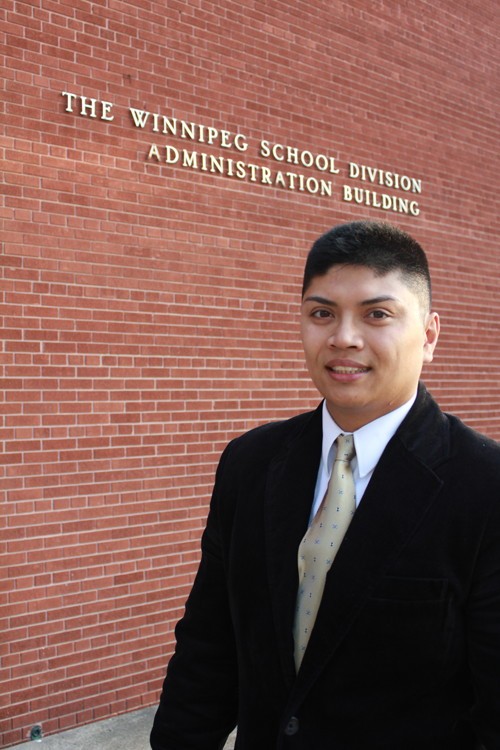The Better Voter Series: School trustees raise the stakes of municipal election
School boards crucial for public education, community development
There is more at stake in October’s municipal election than just the cosmetics of city council or who will occupy the mayor’s office.
Several hotly-contested wards and the retirement of 10 school trustees may turn election day into a major event for school boards, local communities and youth throughout Winnipeg.
“School boards (and their decisions) affect our prosperity as a province and as a civil society,” said Carolyn Duhamel, executive director of the Manitoba School Boards Association, about the importance of voting for school trustee on Oct. 27, the day of the municipal vote.
Winnipeg is divided into six school divisions based on community and geographic boundaries. Winnipeggers within each division elect a school board, generally made up of nine trustees, every four years and in conjunction with each municipal election.
While education is ultimately a provincial responsibility, these trustees are given the authority to enact local, community-based initiatives while still living up to provincial learning standards.
“We have an urban province and a rural province and a northern province,” said Nancy Allan, provincial education minister. “The importance of school trustees is that they enforce that (distinction).”
According to Allan, Manitoba’s curriculum is made up of final outcomes. As such, local school boards are given the autonomy and authority to decide the best path for reaching the curriculum goals.
This makes school trustees a key authority when it comes to integrating new immigrants into Canadian society, providing special needs services and establishing breakfast programs for children deprived of a nutritious diet at home, she said.
“I think a lot of people really believe that education is the equalizer ... it builds a citizenry,” said Allan.
Anthony Ramos is a 30-year-old teacher, West End resident and a Winnipeg School Division trustee. He first ran in 2006 because of a conviction that public education is crucially important in establishing equality throughout Winnipeg.
He is now looking to be re-elected and serve the division for another four years.
“Where (youth) are from shouldn’t impact where they ultimately end up,” said Ramos. “Levelling access for every single student is what drives me.”
The struggle for power
Despite the important work that school boards do, many trustees are frustrated with what they see as governmental interference in school board responsibilities. They believe that voting in October could relieve some of those tensions.
“The province continues to meddle in issues and they are overstepping their authority,” said Rod Giesbrecht, a retired school trustee who served the River East Transcona school division for 12 years. He is now running for city council in Elmwood-East Kildonan.
Winnipeggers need to vote for independent school boards, he said.
Giesbrecht pointed to the Sept. 11 announcement by the Selinger government to standardize report cards, putting in place either a percentage or letter grade system for Grades K-8 throughout the province.
River East Transcona already has a standardized report card for Grades K-8 throughout their division. The report card, which took a great deal of time and money to enact, will now be reversed because of political interference, he said.
“There is no consultation ... sometimes you just have to shake your head and wonder what they (the province) are doing.”
Nick Martin, a veteran journalist who has covered education for the Winnipeg Free Press for 13 years, has also noticed a distinct pattern in the relationship between the province and school boards.
“It’s been incremental – (the province) has been slowly eroding the autonomy and authority of school boards,” he said.
To back up his claims, Martin pointed to the 2008 implementation of mandatory physical education credits for Grades 11 and 12 throughout Manitoba.
The program caused a huge backlash from school divisions who found themselves suddenly strapped for cash and scrambling to meet the provincial requirements, such as the hiring of additional teachers.
“Other than them (the province) implementing the credits, they didn’t really do anything else to suggest approaches to earn the credits,” said Ramos, adding that schools without gyms had a particularly difficult time finding alternative ways for students to receive the credits.
Nancy Allan responded to these criticisms by saying that any intervention by the government is accompanied by rigorous consultation.
However, the difference between provincial and school board jurisdiction is not quite clear.
“There is no recipe for when we do get involved in issues and when we don’t get involved in issues,” said Allan. “When we come across things that impact public education and we hear from our stakeholders (like parents) ... then we will change those things.”
Published in Volume 65, Number 5 of The Uniter (September 30, 2010)







